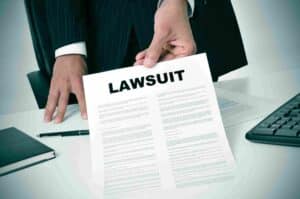
Establishing negligence is a crucial part of any personal injury case. This forms the basis of holding the at-fault party accountable for their actions or inactions that led to the harm sustained by the victim.
Proving negligence requires a clear understanding of the state’s laws, solid evidence, and help from an experienced personal injury lawyer in Florida.
The Role of Negligence in a Personal Injury Claim
Negligence forms the foundation of most personal injury lawsuits in Florida. It refers to the failure to exercise a level of care that a reasonably prudent person would under similar circumstances, leading to harm or injury to another individual.
Four Pillars of Proving Negligence
The journey to proving negligence is structured around four critical elements: Duty, Breach, Causation, and Damages. Each component must be convincingly established for a successful outcome in a personal injury case.
- Duty of Care: This initial step involves demonstrating that the defendant owed a duty of care to the plaintiff. For instance, drivers have a duty to adhere to road rules to prevent harm to other road users. The nature of this duty varies depending on the circumstances and the relationship between the parties involved.
- Breach of Duty: Once a duty of care is established, it must be shown that the defendant breached this duty through action or inaction. Evidence of reckless driving or failure to maintain a safe environment can be pivotal in this phase.
- Causation: Proving causation is about linking the breach of duty directly to the injuries sustained by the plaintiff. It’s not enough to show that the defendant acted negligently; it must be clear that this negligence was the cause of the accident and subsequent injuries. This often requires detailed medical records, expert testimony, and a thorough investigation of the incident.
- Damages: The final element necessitates proof of damages resulting from the negligence. This includes physical injuries, emotional distress, financial losses, and other compensable harms. Documentation such as medical bills, employment records, and personal accounts are crucial in substantiating these claims.
Types of Evidence Needed to Prove Negligence
To prove negligence, it is necessary to gather and present concrete evidence. The evidence not only substantiates the claim but also highlights the severity of the negligence and its consequences.
Understanding the types of evidence necessary can empower victims. Here’s an overview of the critical types of evidence needed:
Photographic and Video Evidence
Visual documentation of the accident scene, injuries, and property damage is powerful evidence. Photos and videos can capture conditions contributing to the incident, such as hazardous environments, lack of warning signs, or the aftermath of a traffic collision. This type of evidence provides a vivid depiction of the circumstances and can significantly influence the outcome of a case.
Witness Statements
Eyewitness accounts can offer crucial perspectives on the incident, providing details that might not be apparent in physical evidence. Witnesses can corroborate the victim’s events and provide independent observations of the defendant’s actions or the conditions leading to the accident. Collecting timely and detailed statements from witnesses can strengthen the case for negligence.
Medical Records
Documenting the injuries suffered and the medical treatment received is essential in linking the negligence to the harm incurred. Medical records, including emergency room visits, diagnostics, treatments, and prognoses, establish the direct impact of the negligence on the victim’s health and well-being. These records are pivotal in demonstrating causation and quantifying damages.
Expert Testimony
In many cases, the expertise of professionals in fields such as accident reconstruction, engineering, medical care, and occupational therapy is enlisted to provide insight into how the negligence occurred, the nature of the injuries, and the anticipated long-term effects. Expert testimony can elucidate complex issues and lend credibility to the claimant’s assertions.
Documentation of Losses
Evidence of economic and non-economic losses is crucial for proving damages. This includes documentation of medical expenses, lost wages, loss of earning capacity, and personal accounts of pain and suffering. Detailed records and expert evaluations can help in accurately quantifying these losses.
Official Reports
Police reports, accident reports, and safety inspections can offer authoritative insights into the incident. These reports often contain observations and findings from officials who responded to the scene, providing a neutral perspective on the events and any violations of laws or regulations that may indicate negligence.
How a Personal Injury Lawyer Can Help Prove Fault
Establishing fault in a personal injury case, understanding legal principles, and evidence gathering. Personal injury lawyers play a critical role in navigating this complex landscape, leveraging their expertise to build a compelling case on behalf of the victim.
Here’s how a personal injury lawyer can be instrumental in proving fault:
Expert Evidence Gathering
One of the ways a personal injury lawyer assists is through the thorough collection of evidence. This includes obtaining surveillance footage, gathering witness statements, securing medical records, and compiling documentation of losses. Lawyers are skilled in identifying and collecting the types of evidence crucial to proving fault, ensuring no stone is left unturned.
Leveraging Legal Knowledge
Personal injury lawyers bring to the table an understanding of state laws and legal precedents that apply to the case. They know how to navigate the legal system and use the law to the client’s advantage, arguing the case within the framework of relevant statutes and case law. This expertise is crucial in identifying the legal basis for the claim and framing the evidence to demonstrate fault effectively.
Consulting with Experts
Lawyers often work with a network of experts, including accident reconstruction specialists, medical professionals, and forensic analysts, to bolster the case. These experts can provide testimony and reports that clarify how the accident occurred, the extent of the injuries, and the impact on the victim’s life. Such expert insights are invaluable in establishing causation and fault.
Strategic Negotiation
Personal injury lawyers are adept negotiators who effectively communicate with insurance companies and opposing counsel to achieve a fair settlement. They understand how to present the evidence of fault in a persuasive manner, advocating for the full compensation that the victim deserves. If settlement negotiations do not result in a satisfactory outcome, the lawyer is prepared to take the case to trial, where their skills in presenting the case can make a significant difference.
Providing Comprehensive Legal Representation
From the initial consultation to the resolution of the case, a personal injury lawyer provides comprehensive legal representation. This includes filing legal documents, meeting court deadlines, and managing the myriad details of the legal process. Their objective is to shoulder the legal burden, allowing the victim to focus on recovery.
Offering Objective Advice
A personal injury lawyer also serves as an objective advisor, offering clear-headed guidance based on years of experience. They can assess the strengths and weaknesses of the case, advise on the best course of action, and set realistic expectations about outcomes. This counsel is invaluable for making informed decisions throughout the legal process.
A Path Forward with Joe Horrox Law
Proving negligence in a Florida personal injury lawsuit is a daunting but not impossible challenge. Victims can achieve the justice and compensation they deserve with the right preparation, evidence, and legal expertise.
Joe Horrox Law stands ready to assist those affected by accidents in Daytona Beach and beyond, offering a combination of local insight and legal prowess. If you or a loved one has been injured due to the negligence of another, reaching out to experienced Daytona Beach accident attorneys can be the first step toward recovery and justice.
